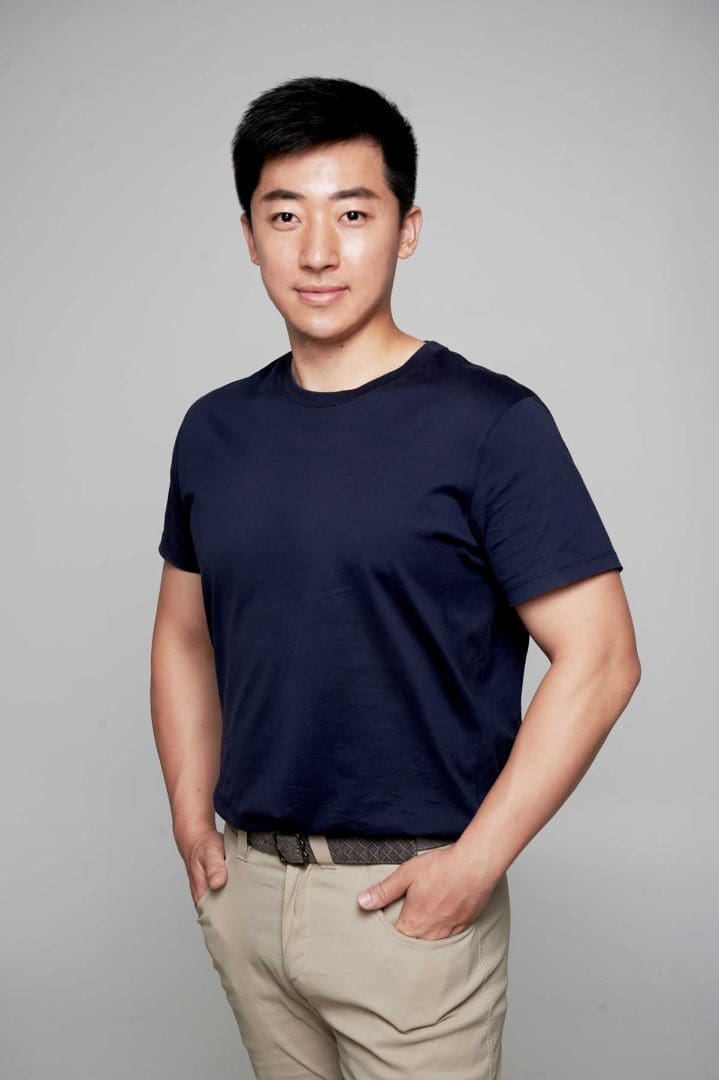The Man Bringing Your Business from NZ to 1.4 Billion New Customers
For a lot of New Zealand entrepreneurs and business owners, the prospect of selling into China and the wider Asia-Pacific region is a compelling market to scale, but it’s also filled with costly pitfalls for those that don’t get it right. To help navigate the nuances of this immense market, Kevin Sun co-founded Cross Culture Club (CCC), a marketing, branding and creative agency with distribution pipelines, to help New Zealand brands develop into this market.
We talk to Kevin about the mistakes that some brands make when going global, the importance of personal relationships and having the right product market fit.
If we look at the Chinese market alone, let alone Asia, there are so many nuances and so many different cultures. Do you have to work in each region separately?
In China, the different regions have different cultures that are very hard to match to one particular approach. It depends on the client and the brand’s philosophy. We first understand what the brand philosophy is and we develop different strategies, like going into different cities or different tiers of cities. For major cities like Beijing and Shanghai, we will use one strategy, and for second or third-tier cities, we may use a different strategy.
Do you ever have to go back and fundamentally change a philosophy? If we look at CCC’s client Comvita, for example, which is centred on this historical focus on natural health, does that philosophy work in any market and then you apply the brand layer to it?
We don’t often change a fundamental philosophy of a brand and haven’t in the case of Comvita. Comvita started with a basis of well-being, and the natural healing power of bees, from honey. I think that’s a philosophy we won’t change and that’s a fundamental that is important for Asian audiences.
Can you talk about some of the other brands that you are working with?
We are now working with a few smaller brands from New Zealand and a few brands from Europe, one called ECCO. We work with them in a similar way to how we work with Comvita, in terms of exploring the brand philosophy of ECCO, how they protect the integrity of the business philosophies and develop those marketing or branding strategies to the brand, which is so far very successful in China.
Another interesting company we are working with is an oat milk company and are looking at developing their branding and business distribution channels across the whole Asian market at the moment.
China has been a huge market for so many different brands and so many different New Zealand companies have tried to enter the market and not all have been successful. Can you talk about some of the mistakes that exporters will make?
There are many different brands or products that suddenly come into the market, but some of them are just trying to earn quick money. They are not looking for long-term success. For us, when we work with a brand, we hope we can grow with the brand in the long run. We don’t like to work on short campaigns. It’s hard to shift the dial. So that’s one of the criteria when we are choosing a brand. If they have long-term potential, we will work with them.
Secondly, the determination to enter a new market, as well as capital investment. When you enter a new market such as China, you have many different processes, registration, and regulations to comply with, which costs quite a lot of time and money. Sometimes brands will lose money when they work with the wrong distribution partners who help the brands commence those processes.
We are a starting point of entering an Asian market. We look at the brand and after the first consultation, we will give them an overall picture of the market, demand, potential, and brief strategies. Secondly, when the brand is ready to go abroad we also could look after the import, registration, and regulations part of business, which can be tough. Our unique connection would add value to those processes. Thirdly, when brands successfully enter the China market, we will select some efficient channels specific to them. We are currently looking into more traditional sales channels, like supermarkets or department stores; those channels are high-cost channels that won’t always suit every brand.

We have some very special channels we work with. For instance, golf courses in China all have golf clubhouses, similar to what we have in New Zealand but generally are bigger, some of them look like mini shopping malls, and sell high-end products. So that’s one of the specialised channels we have a unique relationship with. Those channels not only give us a great sales return, but being on those shelves will also give us branding value. Some high-end customers pay over 500,000 NZD for membership.
We also have airport VIP lounges and entrepreneur clubs throughout China. Those kinds of channels are really valuable for a brand. When your brand has visual exposure in those kinds of channels, doing the marketing, branding, and sales together is more efficient.
That’s quite an amazing infrastructure. How did you go about building it?
Very good question <laughs>. From both sides, the connections and networks are quite important. We have a good track record in China doing business and people anywhere like to work with people who have a good track record.
Secondly, we bring good products with uniqueness and for them, they also have that in mind. They’re trying to find the best product or brand for their customers. They want to add value to their own business. So it’s a positive circle.
How much of it is about the personal relationship when you’re doing business like this?
Yes, so much. I would say probably 70 to 80%.
Is there any advice that you would give for anything that requires that foundation of personal relationships for ongoing business?
I don’t want anyone to take this the wrong way because those personal relationships, lots of times just stem from knocking on the right door, the personal relationship comes after. Running a business is still dependent on your own skills, ability, or your product’s power, your brand’s power. I think door knocking is sometimes important and helps you to trace which channel is the most efficient channel.
I lived in New Zealand for 11 years, so I understand that the New Zealand market compared to China is small. In China, the ocean is massive. You don’t know which door you need to knock on. Sometimes you go to this supermarket or that airline. You don’t know who you’re looking for, but if you can find the top-level senior management, that will be easier because they are the decision makers.
Personal relationships will help you to secure the best channels or best person to deal with, saving your time.
So there’s the personal relationship side of things, but there’s also still the fundamentals of the product as well; making sure that you have a good product. Do relationships start to influence the product side and your approach to it?
Yes, for sure. The brands we work with and their decision makers always have very open minds. That’s one of the very important factors for their success in the Asia market, because sometimes you need to do the new product development to match the market. And personal relationships come into play here when the decision makers trust me to give them advice.
Another reason why some of the brands are not very successful in China is they work with the wrong partners. They are telling them the way to do things is right, but it’s not a hundred percent right because it makes the brands more focused on the Chinese market, but they forget the place of origin.
That’s what CCC does. We always tell the brand, you are from New Zealand, that is the unique advantage. You need to emphasise your story from New Zealand and make sure people understand this is not a brand only registering a company in New Zealand, but selling to the Chinese market. We believe it’s quite important to have the story from the place of origin for a New Zealand brand.
And so is there a demand for that origin story? Is there inherent value in the New Zealand origin?
Yes. I think it is a big demand, also quite dependent on the customer. From the Gen Z, the younger audiences to middle high-end class customers, they have a strong demand for a place of origin, the stories.

How do you think your time in New Zealand has influenced your approach to business?
I integrate New Zealand culture and Chinese culture together. Those backgrounds will influence the New Zealand brands because I show my understanding and respect to diversity. Also, Auckland is my second hometown and the way that I do business is not only focusing on monetary rewards. I anticipate sharing the good stuff from New Zealand to the Asian market, to the Chinese audiences. I want to show the intelligent people who are on the other side of the world doing the great things which they really love. And created so many innovative and authentic products.
Is there anything that you think is a good opportunity for New Zealand companies to think about?
We only focus on premium consumer goods. There are certain products or categories we can look at, but I still reckon the New Zealand entrepreneurs can look at more of the premium or affordable premium level products.
Within that, are there some big opportunities for certain products?
I think beauty products and products related to the well-being of body and mind will be good.
What’s the best piece of advice that you’ve been given along the way?
One of my mentors said this to me. Translating it to English is very simple: “When you can run, just don’t walk.” It stands for an attitude to life, to be hardworking and humble. Time is the most valuable thing a man can spend. Therefore, to live each day as if it were your last. That has always motivated me.
The Lifestyle You’ll Love
Located in the desirable, double Grammar Zone, inner-city suburb of Parnell.
Newmarket Residences
New apartments available starting from $1,199,000 Dual keys and $1,499,000 2 bed






